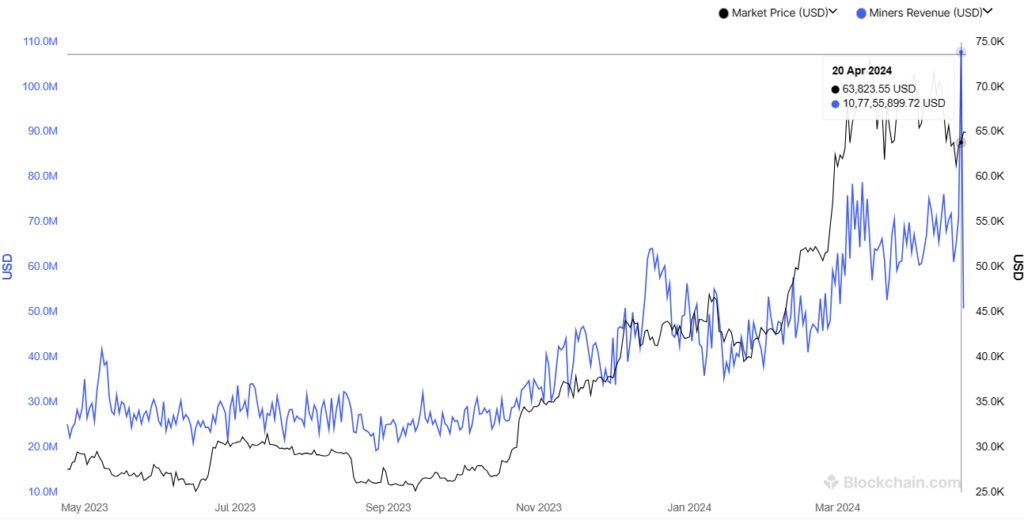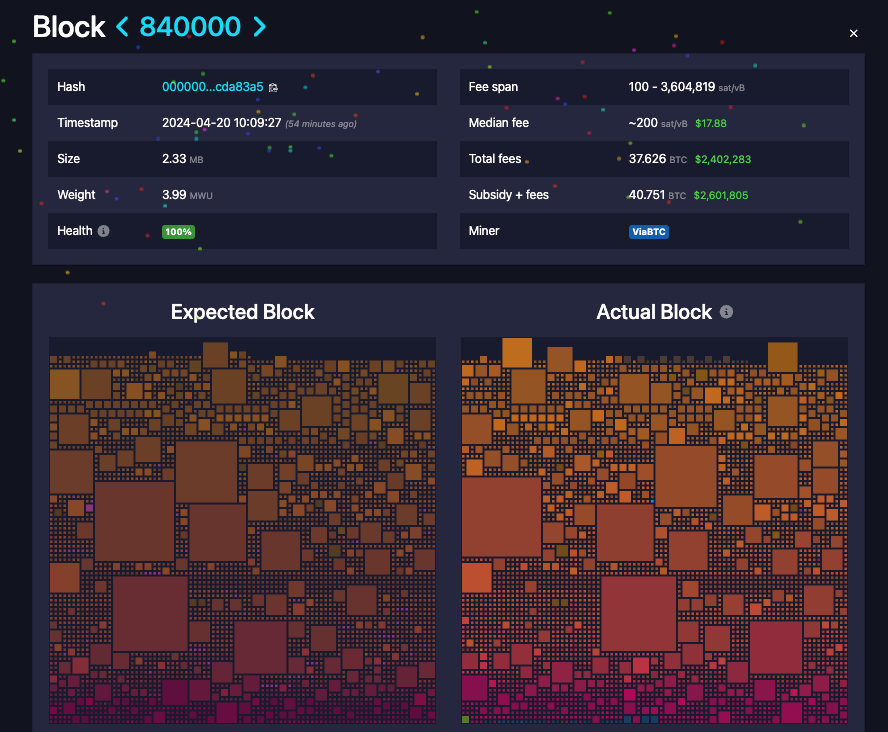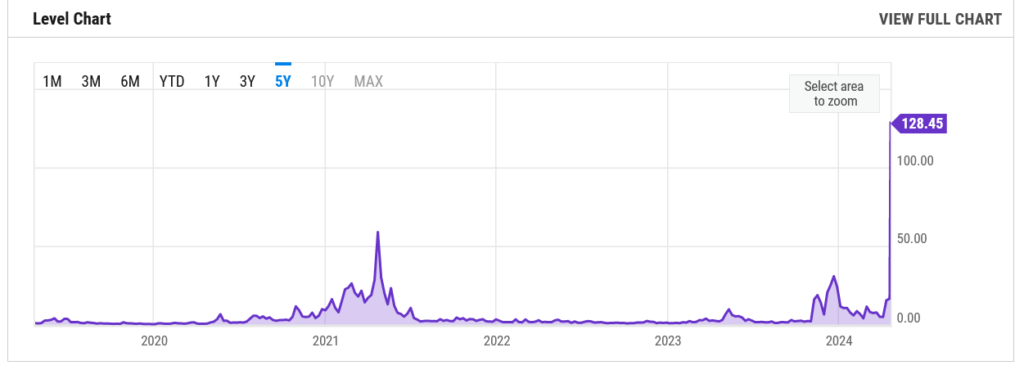Crypto Frenzy: Bitcoin Investors Splurge $2.4 Million in Fees for Historic Block 840,000
More than 3,000 investors eager to become part of Bitcoin‘s historic moment expended 37.7 BTC (equivalent to $2.4 million) solely on fees to secure their spot on the 840,000th Bitcoin block.
The revenue generated from Bitcoin mining surged past the $100 million threshold for the first time, marking a record-breaking daily income on the day of the Bitcoin halving in 2024.
On April 20, Bitcoin miners collectively earned $107.7 million in mining rewards and transaction fees as users willingly shelled out significant fees to ensure their transactions made it onto the 840,000th block.

Investors vying to etch their names into Bitcoin’s annals spent 37.7 BTC (equivalent to $2.4 million) in fees alone to secure space on the historic Bitcoin block, which heralded the fourth halving event. This block accommodated 3,050 transactions, translating to an average user expenditure of just under $800.

The unprecedented fees were primarily attributed to the rush to inscribe rare satoshis on the halving block. Much of this fervor stemmed from heightened activity on Bitcoin Ordinals creator Casey Rodarmor’s newly launched Runes Protocol, coinciding with the halving event.
Previously, the all-time high revenue for Bitcoin miners stood at $78.7 million on March 11, coinciding with Bitcoin’s price soaring to a new peak of $71,415. However, the surge in revenue directly correlated with the market price of Bitcoin, as miners receive BTC rewards in exchange for validating transactions on the blockchain.
The Bitcoin halving event on April 20 halved mining rewards for the fourth time, reducing them to 3.125 BTC for each block mined until the subsequent halving further diminishes them.

With the waning hype surrounding Bitcoin halving, average fees paid on the Bitcoin network have sharply declined just a day after peaking at an average of $128 on April 20.
As of April 21, Bitcoin transaction fees have dropped to an average range of $8–$10 for medium-priority transactions, according to mempool.space.
















Leave a comment